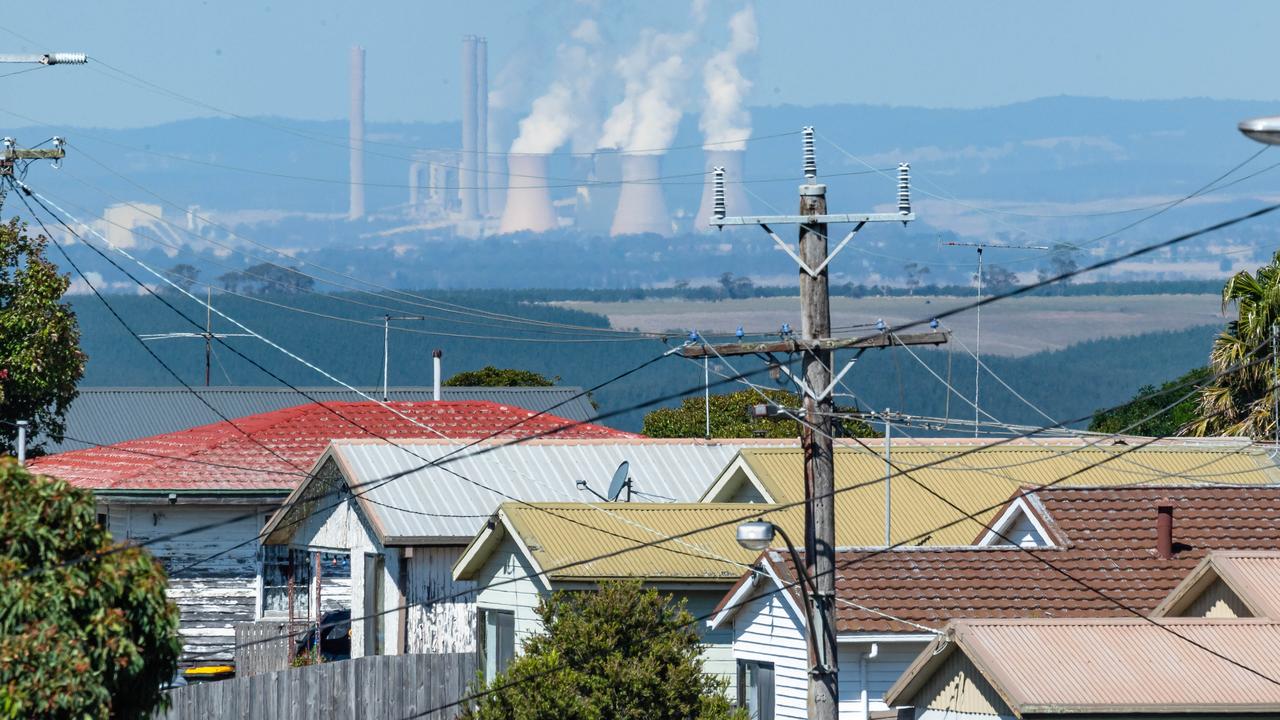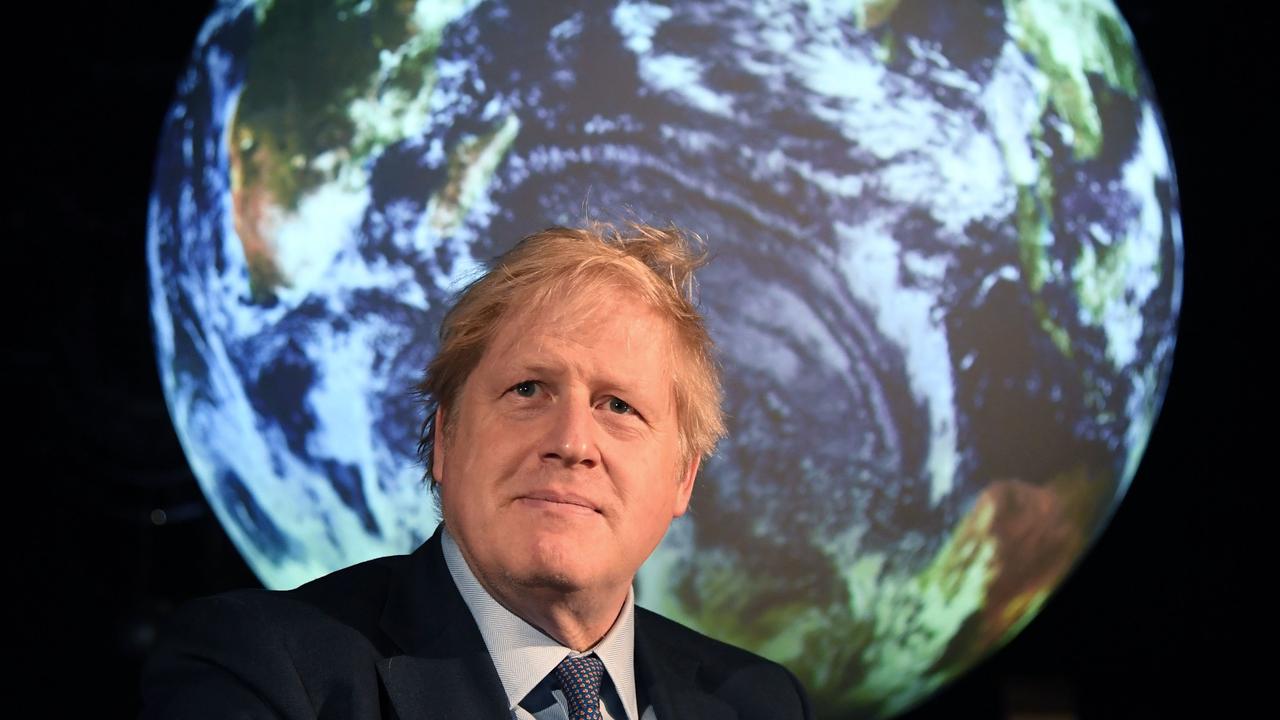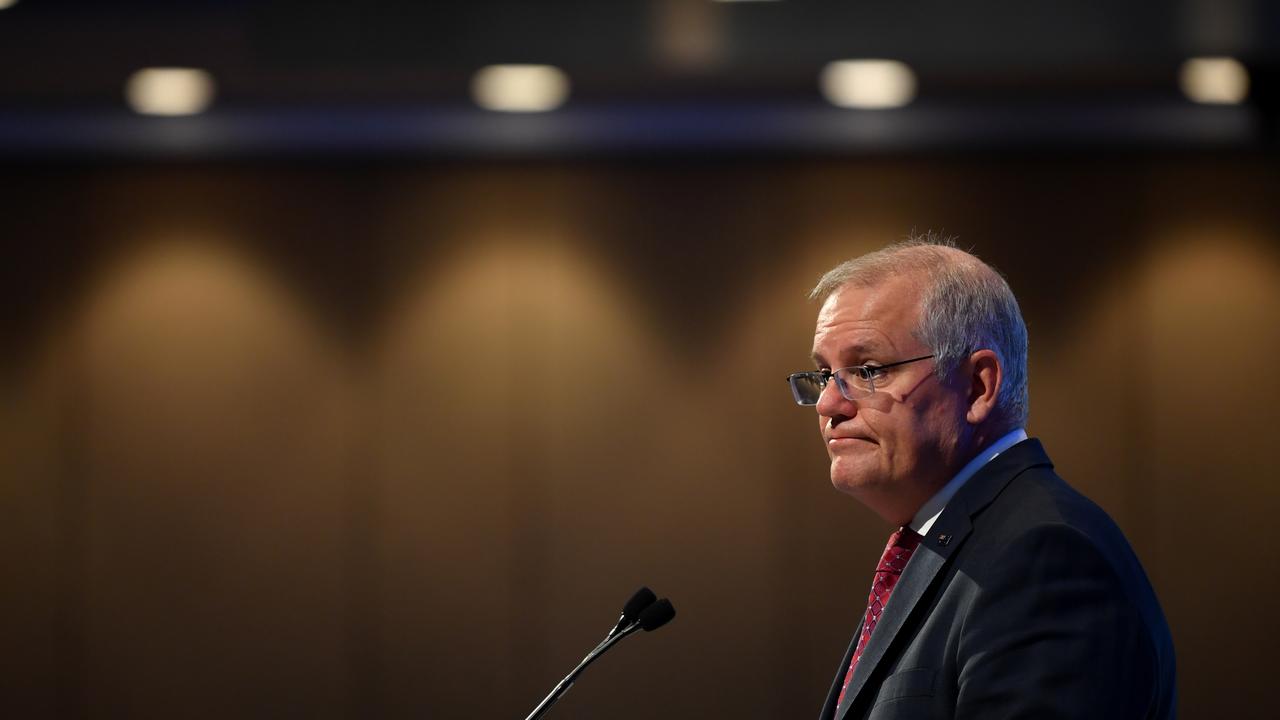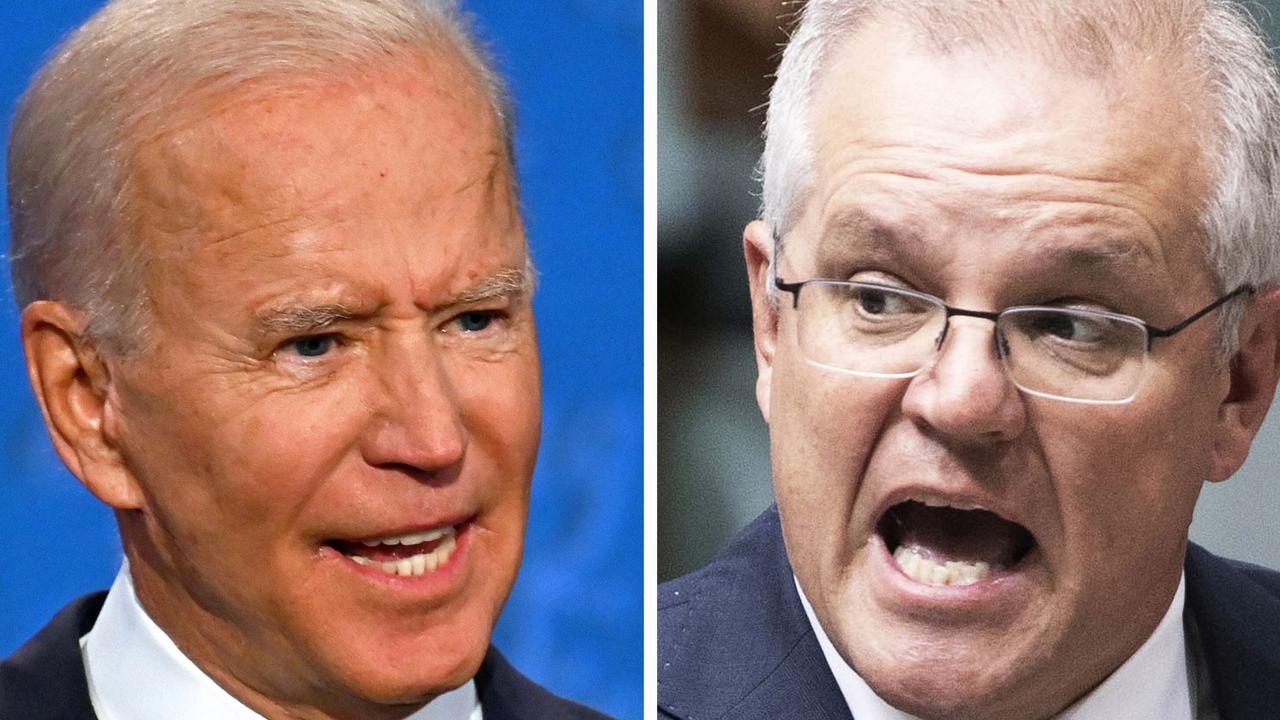Australia being ‘left behind’ globally due to lack of net zero goal
Australia is becoming an “embarrassment” on the world stage through its sluggishness on a key goal. Here is how we compare.
Australia is being “left behind” in a race with like-minded nations, which could lead the country to be worse off economically.
At stake is Australia’s reputation on the world stage.
The issue is a goal of net zero emissions, specifically the Federal Government’s lack in setting one despite nations including the UK, US and China all on board.
And the issue is set to come to a head in just weeks as global leaders head off to the British city of Glasgow for the crucial United Nations COP26 climate summit.
Prime Minister Scott Morrison is yet to confirm if he will attend the conference, but is now leaning towards representing Australia.
“It will definitely be an embarrassment for Australia if we don’t set that goal,” country lead at Melbourne-based non-profit organisation ClimateWorks Anna Malos told news.com.au.
Time Is Now is part of news.com.au’s partnership with the Monash Climate Change Communication Research Hub, looking at the impacts of climate change across Australia by 2050.
“The state and territory governments have set these goals already. They understand the need for clarity; and our companies are crying out for that clarity.
“Not only would it be an embarrassment on the international stage it would also be a mark against us and for the companies who want to operate and invest in Australia.”

Net zero – the key climate measure
Reducing emissions is seen as key to holding temperature increases to below 2C above pre-industrial levels and preferably to 1.5C as set out in the Paris Agreement, which Australia signed up to.
So far, it’s not going well. The most recent report from the UN’s Intergovernmental Panel for Climate Change stated the world had warmed by 1.1C and Australia by 1.4C.
Net zero is the aim to effectively eliminate emissions globally – preferably by about 2050. Some emissions are inevitable but the idea is those can be balanced by measures such as carbon sinks.
“Without setting that clear net zero goal, you don’t create the direction that our economy and our communities need,” said Ms Malos.
“I compare it to our Olympians and Paralympians who knew what they wanted and then worked out the steps they need in order to set themselves up to win those medals.”

Australia falling behind peers
Close to 60 countries now have a net zero goal, around half of which are set down in law. Bhutan and Suriname are already at net zero. Finland has a goal of 2030 but most nations are looking at 2050, including France, New Zealand, Canada, South Korea, Japan, Brazil and Spain. China has set its net zero deadline at 2060.
Under President Joe Biden, the US has announced an interim target of a 50 per cent drop in net emissions by 2030. It’s likely at Glasgow, other nations will do the same.
And Australia? The Government does have a goal to reduce greenhouse gas emissions to 26–28 per cent below 2005 levels by 2030.
As for net zero Mr Morrison has said there is an ambition to achieve net zero emissions “preferably by 2050”.
But it’s not a commitment legislative or otherwise. And it puts Australia in the holdout column along with India, Russia, Iran and much of the oil producing Middle East.

Australia’s awkward moment with allies
Australia’s reticence hasn’t gone unnoticed and has already led to some awkward moments with allies who otherwise stand shoulder-to-shoulder with the nation.
In December, Mr Morrison was denied a speaking slot at a climate chinwag leading up to Glasgow because Australia’s environmental aims were too weak.
In August, the US’ deputy climate chief Jonathan Pershing old a UN conference that, “It would be really helpful to see Australia step forward with a more ambitious effort,” when it came to climate change.
British Prime Minister Boris Johnson has also urged Mr Morrison to do more on climate when the two spoke in August including, specifically, a clear net zero goal.
It’s not all bad news. Australia’s greenhouse gas emissions, which account for just above 1 per cent of global emissions, have fallen by 14.3 per cent compared to 2005. Much of that is down to less coal being burned and more renewables. But those reductions have plateaued.
In 2019, Australia produced 538.9 million tonnes of C02. In contrast Britain, which has three times the population and historically was a larger emitter than Australia, now produces 326 million tonnes of C02 annually with consistent reductions.
Government insists it’s on track
In August, Energy Ministry Angus Taylor said in the year to March 2021, Australia’s total emissions had dropped to 494.2 million tonnes, 20.8 per cent below the 2005 levels.
“We are on track to meet and beat our 2030 Paris target,” he said.
But the past 12 months have been at the depth of the Covid-19 pandemic with much reduced movement and consumption; it was hardly a typical year.
Britain’s declines have been in part achieved by a continued decline in coal use, which now makes up just 5 per cent of the energy mix. In Australia coal makes up more than half the country’s electricity supply.
To get to net zero Australia will either have to burn far less coal or find a way to make coal cleaner.
There are doubts the latter can be achieved, and there arefears in the Coalition about job losses if the former occurs and coal uses falls further.
It’s one of the reasons committing to net zero has been so painful for the Government.
Indeed, in August Mr Morrison rejected more stringent emissions targets.
“Australia is doing its part. I won’t be signing a blank cheque on behalf of Australians to targets without plans,” he said.
In early October he signalled he wouldn't go to Glasgow as “my first responsibility is to explain (an emissions plan) to Australians, not to people at overseas conferences”.
The question is — with many, particularly in the Nationals, dead against net zero — what is the plan?

A loss for Australia
Ms Malos said the Government was too focused on current jobs in the industry, rather than the jobs of the future cleaner energy could bring.
“There’s a reluctance to change something that has served us so well in the past.”
She said Australians could see the very real effects of environmental damage in more intense bushfires and floods and it was in our “vested interest” to tackle climate change.
Even without a concrete net zero goal, Ms Malos said it would effectively happen anyway.
Major companies are now jumping on board net zero from Coles and Woolworths to the emissions-heavy firms BHP and Fortescue.
But, said Ms Malos, only the Federal Government could provide the framework to get to net zero.
“If that goal isn’t set before Glasgow, it will be a loss for Australia, a loss of reputation. And it will make it harder for companies and investors,” she said.
“We need to get on the front foot both for our economy as well as for our environment.
“The world economy is shifting. We have to shift with it or we will get left behind.”






